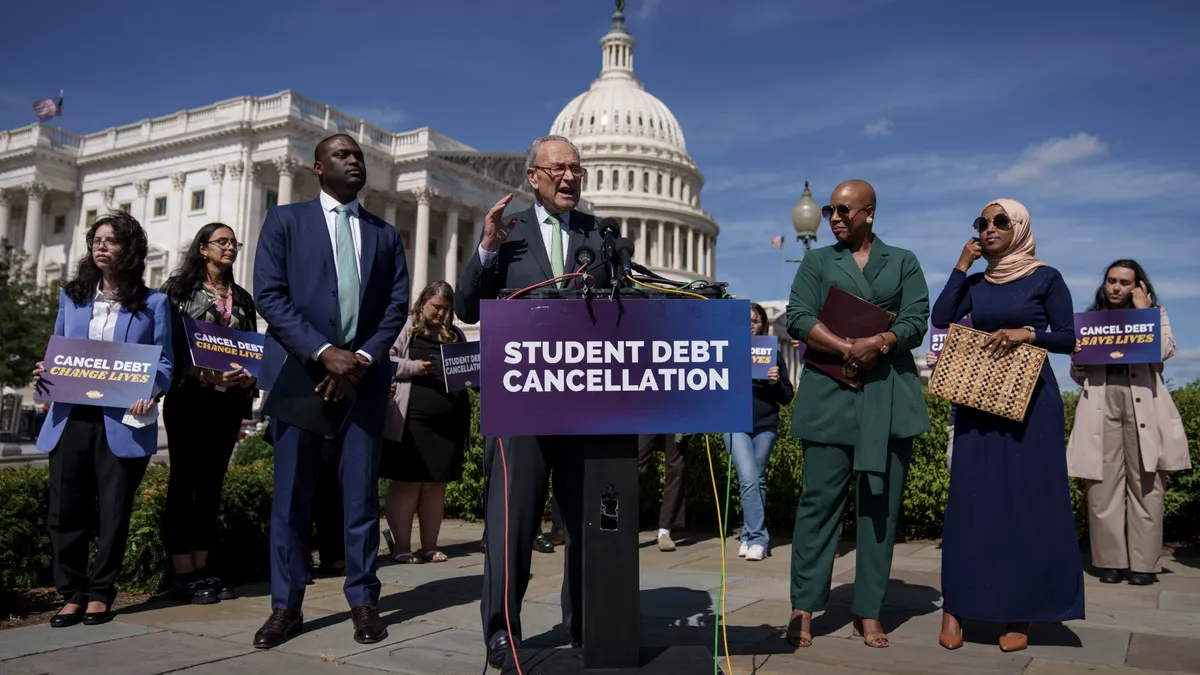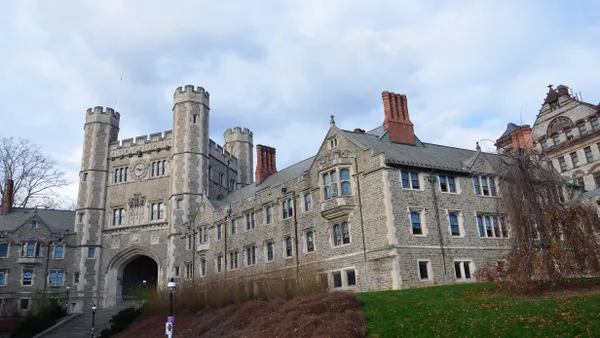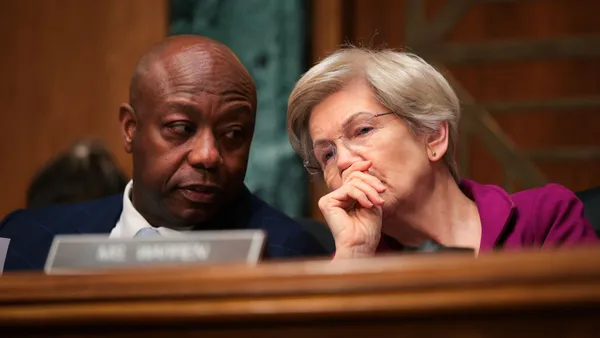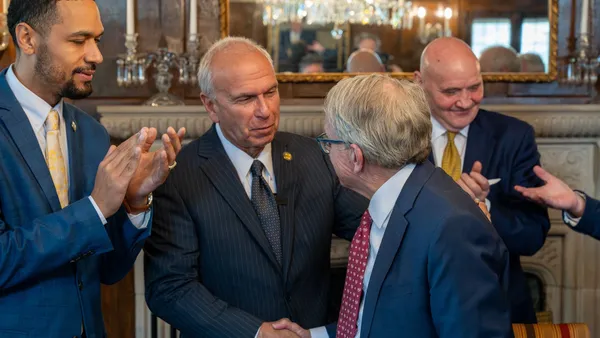Dive Brief:
- President Joe Biden's wide-ranging student loan cancellation plan will cost $379 billion over roughly 30 years, the U.S. Department of Education estimated last week.
- Most of the program's costs will come in its first decade, when they will average about $30 billion per year. The program will cost a total of $305 billion in its first 10 years, the Education Department said in its estimates, released Thursday.
- The Education Department's estimates are about 5% below costs projected by the nonpartisan Congressional Budget Office, which projected the program will cost some $400 billion over 30 years.
Dive Insight:
Both the Education Department and the Congressional Budget Office projected the debt-cancellation plan's costs — based on cash flow the federal government will forego from student loans — over about 30 years. But the Education Department reached a lower total after projecting fewer borrowers will take part in the program.
The Education Department assumed 81% of eligible borrowers will apply for loan forgiveness. The Congressional Budget Office expected 90% of eligible borrowers to take necessary steps for forgiveness.
It's difficult to say how many of the country's more than 40 million student loan borrowers will receive debt relief in part because take-up rates for other government benefits vary widely. The Education Department's closed-school discharge program, which clears debts for students whose colleges shut down, has a take-up rate of just under 50% — although it's been sharply criticized as slow and opaque.
On the other hand, popular federal assistance programs with far more history, Social Security and Medicare, have take-up rates above 90%, according to the Education Department, which described them as outliers.
Student debt cancellation is important for colleges to monitor because it could have major ramifications for the future of federal financial aid and public support for higher education. It's sucked up much of the oxygen in the higher education politics and policy space since Biden announced it at the end of August.
Republicans are criticizing the loan forgiveness as a fiscally irresponsible giveaway to those who attended college. Some economists have argued it will drive up demand for college — and institutions’ prices.
But the president defended it as a game-changer for low- and moderate-income families. Leading Democrats have argued most of the cancellation will go to those earning under $75,000 annually.
The plan would forgive up to $10,000 in federally held loans, or up to $20,000 for borrowers who received Pell Grants when they were in college. Pell Grants are often considered a proxy for low-income status, and the Congressional Budget Office has estimated about two-thirds of eligible borrowers received at least one Pell Grant.
Debt forgiveness would be available for individuals making up to $125,000 annually. The income cap is $250,000 for married couples filing taxes jointly.
Last week brought several legal challenges to the plan. Six states sued in federal court in Missouri, arguing in part that forgiving debts will damage investments involving student loans that one state, Nebraska, uses to benefit pensioners. They also argued the move will harm state loan servicing agencies.
Arizona Attorney General Mark Brnovich, a Republican, filed a separate lawsuit in federal court making a similar argument to the other six states — that the Biden administration is infringing on congressional authority.
The Biden administration says the 2003 Higher Education Relief Opportunities for Students, or HEROES, Act grants it authority for the debt forgiveness plan. That law allows the education secretary to change federal financial aid programs in times of war, military operations or national emergency. The Biden administration says the coronavirus pandemic qualifies as an emergency.
States suing say that's not the intent of the law. They contend changes like a temporary suspension of payments and interest mean student loan borrowers are in a better position today than they were before the pandemic, making loan forgiveness unnecessary.
Separately, a libertarian legal group is suing the administration over the debt forgiveness plan, arguing it will cause some borrowers to have to pay additional state taxes. In response, the Biden administration said it will allow borrowers to opt out.
Legal experts speculated the administration has attempted to minimize potential court challenges from companies that own student loans.
It's not the only way the administration responded to legal threats. It also recently dropped debt forgiveness for federally guaranteed student loans that are owned by private companies.
Those loans, issued under the Perkins and Federal Family Education loan programs, tend to be older, as the government ended the FFEL program in 2010 and failed to renew the Perkins program several years later.
But the change is still notable. The Biden administration has said it will exclude approximately 770,000 borrowers.















